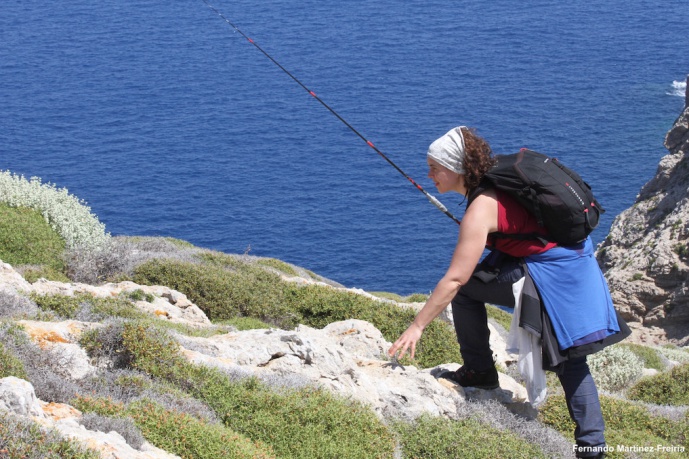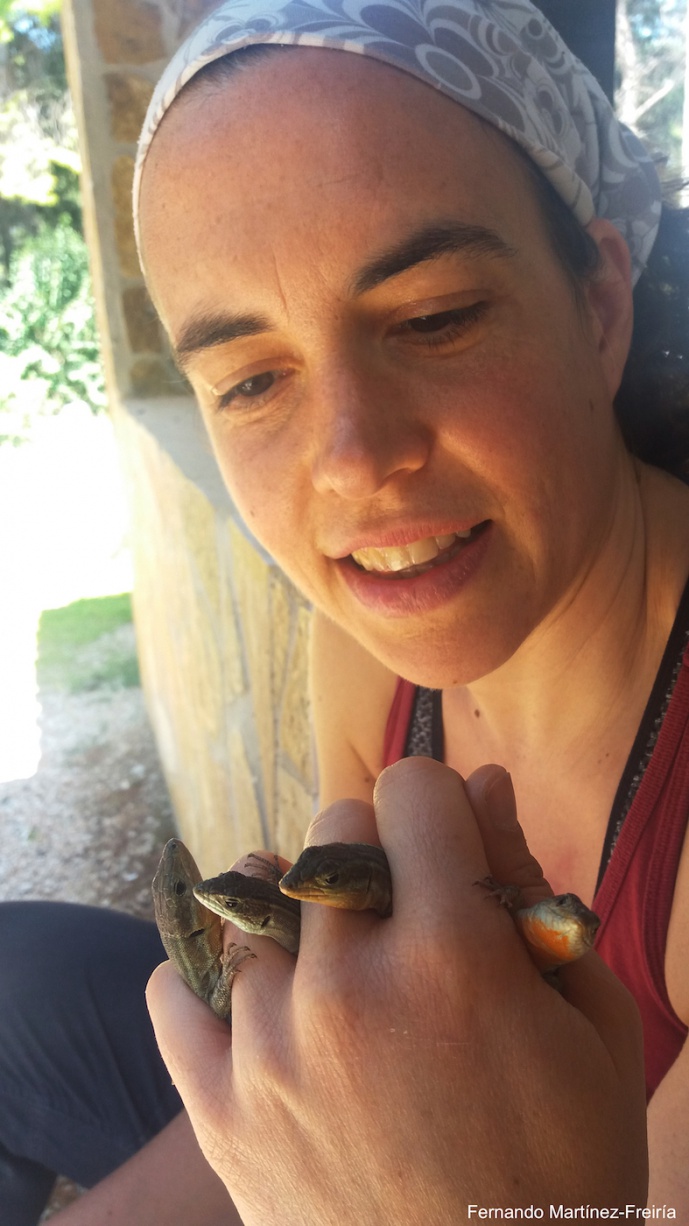Antigoni Kaliontzopoulou
Collaborator
In my research I combine morphometric techniques with a functional approach and phylogenetic comparative tools to explore patterns of morphological variation in Mediterranean lizards (Kaliontzopoulou et al. 2012, Zool. J. Linn. Soc.), and link them to their proximate (Kaliontzopoulou et al. 2008, Biol. J. Linn. Soc.) and evolutionary (Kaliontzopoulou et al. 2010, J. Evol. Biol.) causes. For this, I have developed protocols for using geometric morphometrics in lizards (Kaliontzopoulou 2011, Basic & Applied Herpetol.), addressed how we can identify the impact of human-induced disturbances on biodiversity (Lazić et al. 2013, PLoS ONE; Lazić et al. 2015, Am. Nat.), and explored the functional and ecological meaning of morphological variation (Kaliontzopoulou et al. 2012, Evol. Ecol.; Kaliontzopoulou et al. 2013, J. Zool.; Kaliontzopoulou et al. 2015, J. Evol. Biol.). This research has advanced our understanding of the evolutionary dynamics underlying phenotypic diversification, by addressing how morphological patterns translate into functional variation, and linking them to their ecological significance. I also collaborate in studies addressing similar questions in other organisms, to which I contribute my expertise on geometric morphometrics and quantitative analytical methods for the study of phenotypic evolution. These include e.g. studies in amphibians, birds, primates, scorpions, and periwinkles.
Common to all these studies is the focus on the comprehension of the ecological and evolutionary dynamics involved in shaping biodiversity patterns. My future endeavour is to develop my research career towards a framework that will take advantage of evolutionary theory and implement it at different evolutionary scales to address questions regarding the mechanisms responsible for the generation of phylogenetic, morphological, functional and taxonomic diversity. In the long run, I would like to pursue a research line towards studying the processes that drive the evolution of biodiversity in Mediterranean ecosystems and shed light to the evolutionary dynamics involved in shaping the Mediterranean Basin as one of the worlds' richest biodiversity hotspots. For this, I would like to extend my network of collaborations to include several model organisms, in order to assess which macroevolutionary biodiversity patterns are a result of processes transversal to Mediterranean biota, and which, by contrast, represent taxon-specific responses.
If you want to know more about my research, please visit my personal webpage.

